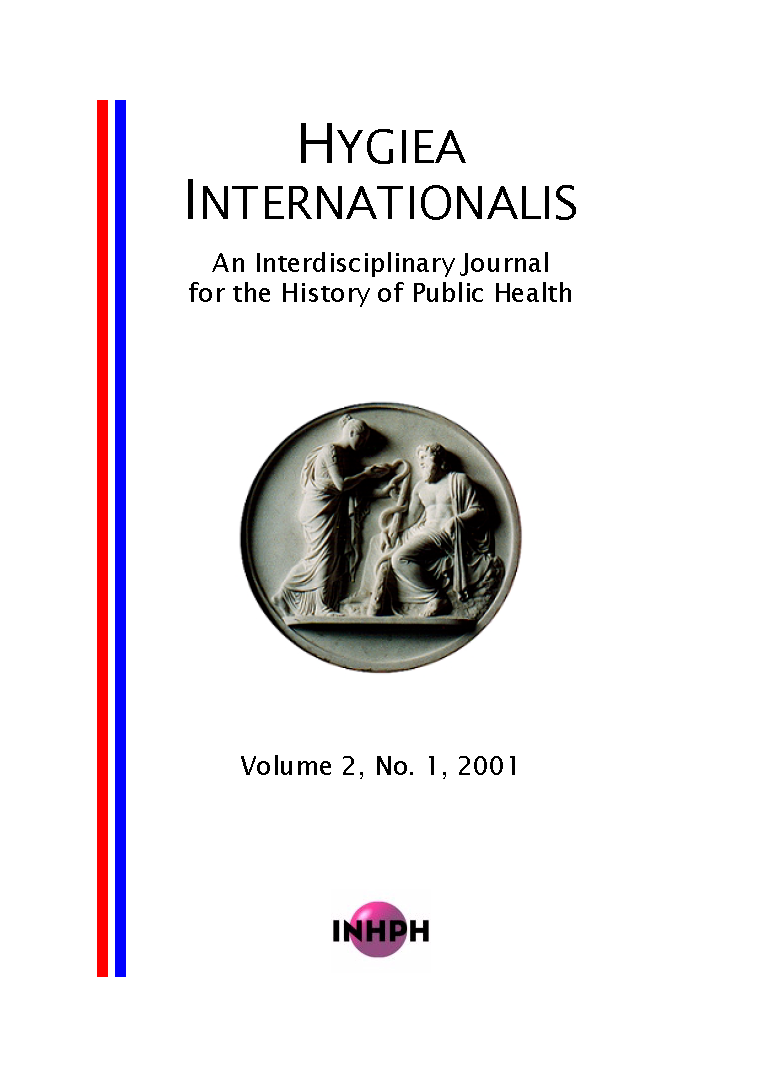Contagion, Policy, Class, Gender, and Mid-Twentieth-Century Lancashire Working-Class Health Culture
DOI:
https://doi.org/10.3384/hygiea.1403-8668.01217Keywords:
Contagious diseases, public health history, medical history, working-classAbstract
Based on more than 200 oral history interviews of working-class residents of three north Lancashire cities, this paper considers experience and management of contagious diseases during the first half of the twentieth century. It argues that new and expanding local public health services helped to stimulate the transition from traditional lay female management of ill-health to working-class dependence on professional public health and medical expertise? a transition that was essentially completed by the establishment of the National Health Service in 1948. The paper documents working-class experience of formal public health personnel and measures, including health visitors, home quarantine, isolation hospitals, and infant welfare clinics, exploring both resistance to and acceptance of these measures in the context of changing local health cultures.Downloads
Published
2001-06-20
How to Cite
Beier, L. M. (2001). Contagion, Policy, Class, Gender, and Mid-Twentieth-Century Lancashire Working-Class Health Culture. Hygiea Internationalis: An Interdisciplinary Journal for the History of Public Health, 2(1), 7–23. https://doi.org/10.3384/hygiea.1403-8668.01217
Issue
Section
Articles
License
Copyright (c) 2001 the Author(s)

This work is licensed under a Creative Commons Attribution-NonCommercial 4.0 International License.






